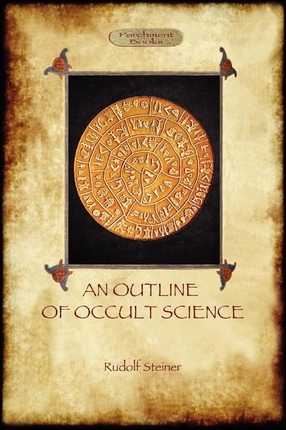In a factual training certain qualities are mentioned that the student who wishes to find his way into the higher worlds should acquire through practice. These are, above all, control of the soul over its train of thought, over its will, and its feelings. The way in which this control is to be acquired through practice has a twofold purpose. On the one hand, the soul is to be imbued with firmness, certainty, and equilibrium to such a degree that it preserves these qualities, although from its being a second ego is born. On the other hand, this second ego is to be furnished with strength and inner consistency of character.
What is necessary for the thinking of man in spiritual training is, above all, objectivity. In the physical-sensory world, life is the human ego’s great teacher of objectivity. Were the soul to let thoughts wander about aimlessly, it would be immediately compelled to let itself be corrected by life if it did not wish to come into conflict with it. The soul must think according to the course of the facts of life. If now the human being turns his attention away from the physical-sensory world, he lacks the compulsory correction of the latter. If his thinking is then unable to be its own corrective, it must become irrational. Therefore the thinking of the student of the spiritual must be trained in such a manner that it is able to give to itself direction and goal. Thinking must be its own instructor in inner firmness and the capacity to hold the attention strictly to one object. For this reason, suitable “thought exercises” are not to be undertaken with unfamiliar and complicated objects, but with those that are simple and familiar. Anyone who is able for months at a time to concentrate his thoughts daily at least for five minutes upon an ordinary object (for example a needle, a pencil, or any other simple object), and during this time to exclude all thoughts that have no bearing on the subject, has achieved a great deal in this regard. (We may contemplate a new object daily, or the same one for several days.) Also, the one who considers himself a thinker as a result of scientific training should not disdain to prepare himself for spiritual training in this manner. For if for a certain length of time we fasten our thoughts upon an object that is well known to us, we can be sure that we think in conformity with facts. If we ask ourselves what a pencil is composed of, how its materials are prepared, how they are brought together afterward, when pencils were invented, and so forth, we then conform our thoughts more to reality than if we reflect upon the origin of man, or upon the nature of life. Through simple thought exercises we acquire greater ability for factual thinking concerning the Saturn, Sun, and Moon evolutions than through complicated and learned ideas. For in the first place it is not at all a question of thinking about this or that, but of thinking factually by means of inner force. If we have schooled ourselves in regard to factuality by a physical-sensory process, easily surveyed, then thought becomes accustomed to function in accordance with facts even though it does not feel itself controlled by the physical world of the senses and its laws, and we rid ourselves of the habit of letting our thoughts wander without relation to facts.
Source: Rudolf Steiner – GA 13 – An Outline of Occult Science – V: Cognition of the higher worlds. Initiation. (Part 2)
Translated by Maud and Henry B. Monges and revised for this edition by Lisa D. Monges

